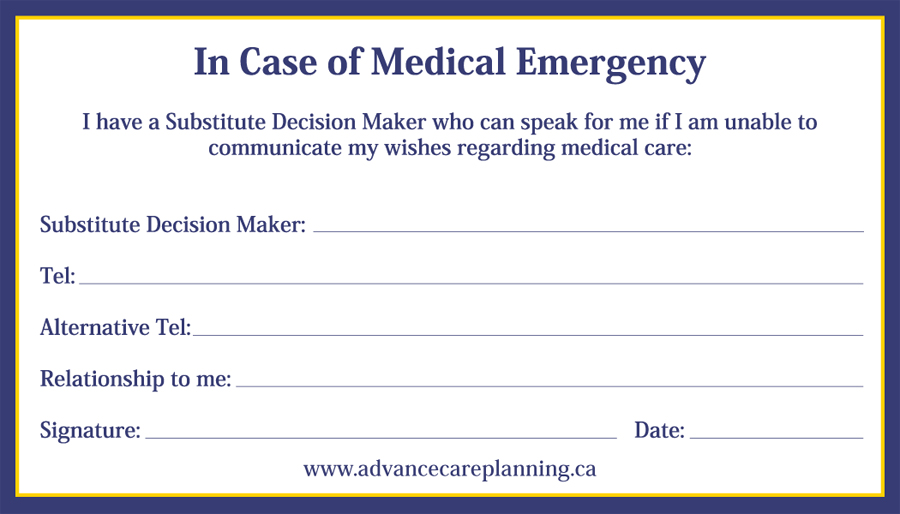Most of us can’t – or won’t – talk about death and dying
Administrator | Apr 16, 2015 | Comments 0
By Sharon Baxter
“It’s not that I’m afraid to die. I just don’t want to be there when it happens.” – Woody Allen
An elderly woman with incurable end-stage heart disease is rushed to hospital and quickly goes into cardiac arrest. Despite her poor condition and minimal chance of survival, her panicked husband requests that the health team do everything they can to save her. Medical staff work tirelessly to resuscitate her, breaking several of her frail ribs in the process before the doctor finally ends the ordeal. He pronounces the woman dead and the obviously distressed attending nurse quietly whispers, “thank you”.
It’s an undignified death, one that goes against the wishes of most people – and yet, it’s a scenario that plays out each and every day in Canadian hospitals. The reason? Most of us can’t – or won’t – talk about death and dying. Our unwillingness to do so is having serious side effects – not just for us, but for those who survive us.
Despite impressive medical advances, humans have yet to unlock the ultimate holy grail of science: how to avoid death. Each year, more than 248,000 Canadians die, and by 2020, that number will increase to over 330,000. And while many of us have completed wills and planned our funerals, most of us haven’t talked about the dying part of death – how we want to be cared for when the end is near, and who will speak for us if we can’t speak for ourselves.
We’d all like to think that we’ll be coherent and lucid right until the end. But what if you’re not? What if you can’t talk and are told you will soon be unable to swallow? To breathe? Who would speak for you?
April 16th is National Advance Care Planning Day – designed to get people to reflect on values and wishes about decisions made at the end of life. The day encourages people to begin a conversation with a loved one about their wishes for end of life care.
Advance care planning is a process that involves letting others know about your future health and personal care preferences in the event that you become incapable of consenting to or refusing treatment or other care. It can be changed at any time, and would only be used if you could were not capable of speaking or making decisions for yourself.
Your plan should include the name of a substitute decision maker – someone who will speak on your behalf if you cannot speak for yourself. The most important part of your plan? Talking to the people who matter in your life– now. Don’t leave others with the incredible burden of having to deal with their own grief and pain while trying to guess what you’d want.
Imagine a different future for the elderly woman with heart disease – she still dies, but this time, it’s as she hoped: at home, in the arms of her husband and perhaps tended by a palliative care professional who ensures she is without pain at the end. A death that still brings grief and sorrow, but with dignity and respect for a life well lived.
– Sharon Baxter is Executive Director, Canadian Hospice Palliative Care Association
Locally, contact Heather Campbell, Palliative Care Coordinator, Prince Edward Family Health Team
613-471-1161 or hcampbell@pefht.com
Below, a quick Advance Care Planning guide from www.advancecareplanning.ca
Advance Care Planningquick_guide
Filed Under: Local Services • News from Everywhere Else
About the Author:




































